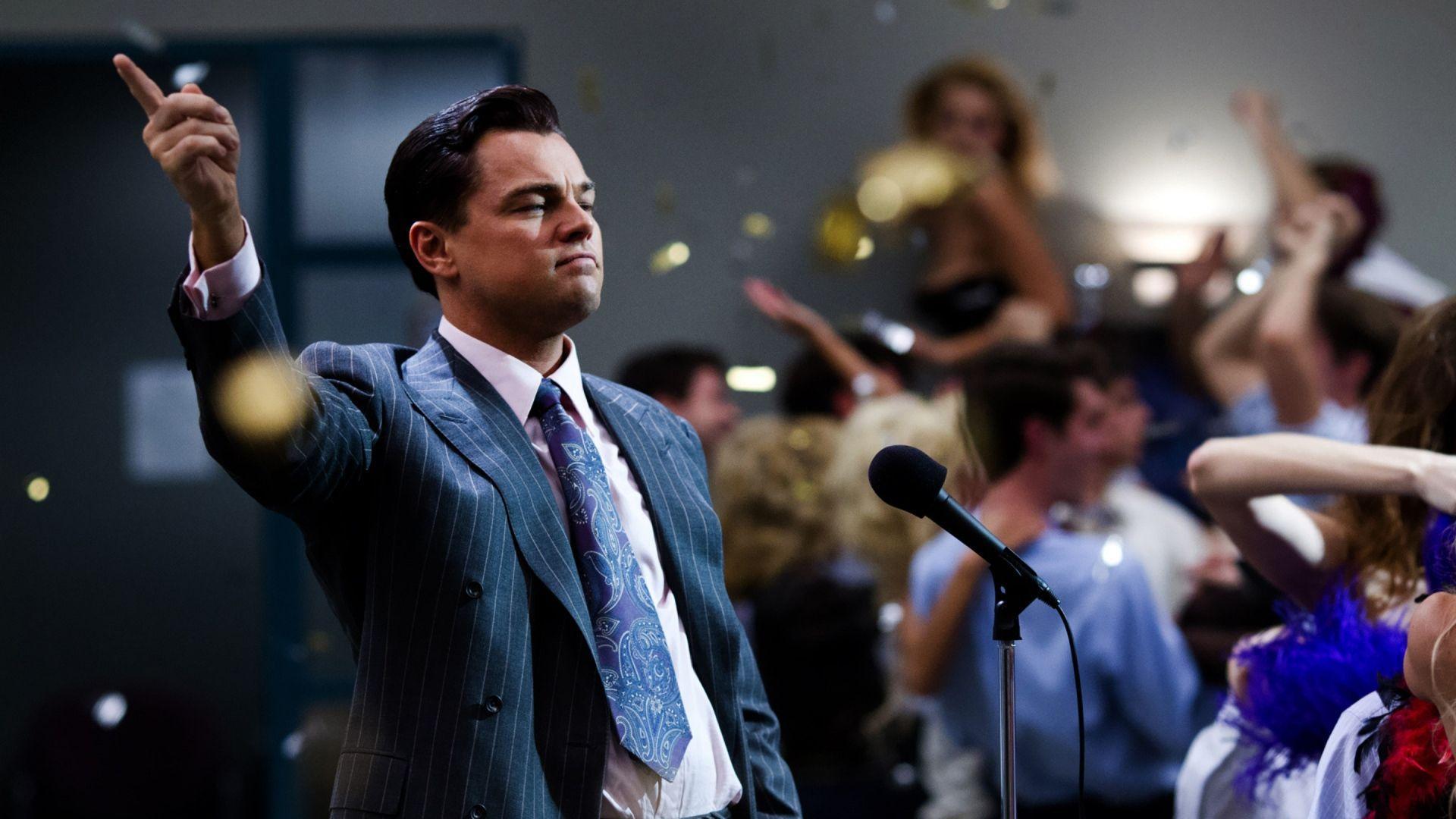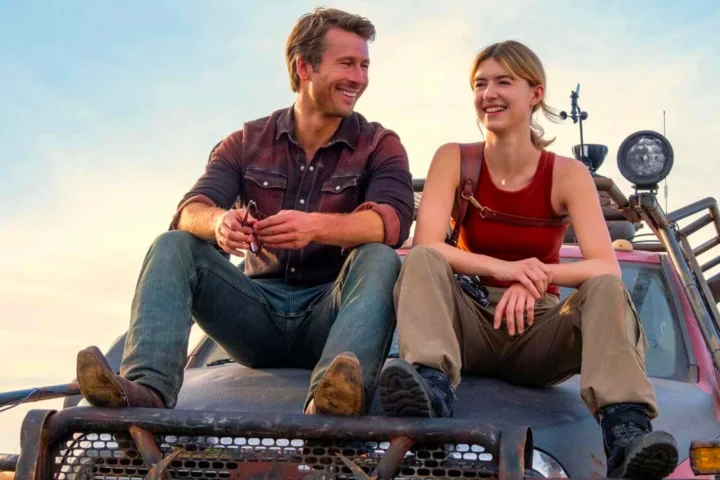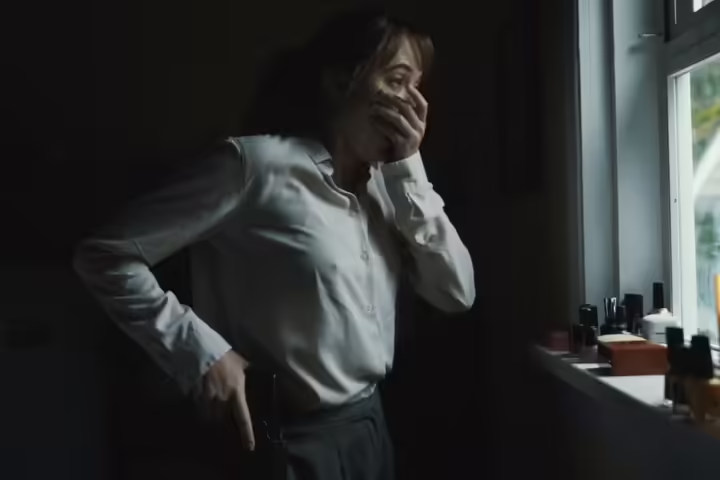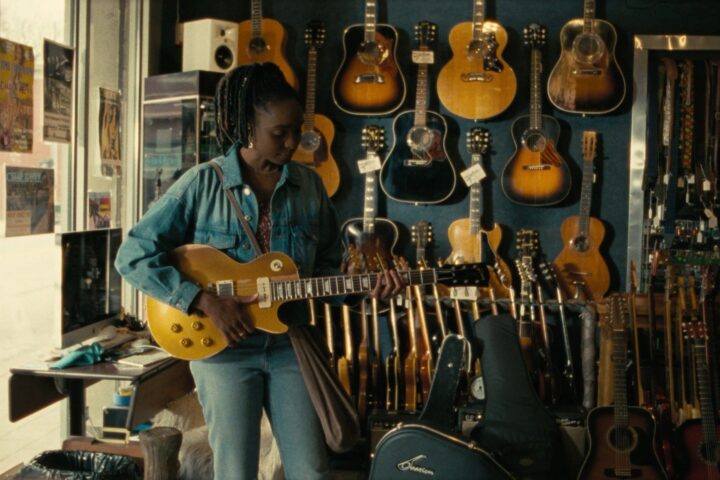Martin Scorsese and Leonardo DiCaprio are at the top of their respective games with The Wolf of Wall Street, the crown jewel of American film in 2013. At 71, Scorsese returns to glorious form with a wild ride of a movie, an unrepentant and amoral morality play—if there is such a thing—about greed, capitalism, sex, drugs and excess run amok in the boys’ club cabal of Wall Street.
It’s a scathing and pointed satire of the 1%, a modern-day, Roman empire redux about a handsome, fast-talking rogue who stole from the poor to get richer than rich, all without an ounce of conscience. In a movie that spends a breakneck 179 minutes depicting the rarified world of an elite scam artist who came from nothing and took everything, this immensely entertaining picture is loaded with bacchanalian visions of delusion and grandeur—Ken Russell could have perhaps directed in another time—so broad and explicit that they will certainly polarize audiences.
From getting blown to blowing coke into a hooker’s ass in the opening sequence, The Wolf of Wall Street doesn’t pause for one second to teach any lessons or offer any mea culpas—and with a golden boy star at the helm, it provocatively lures us in, very nearly making us empathize with the rakish and rude masters of the universe. These are the guys who have ruined the American economy, yes, but they are played by engaging movie stars—a masterstroke.
From a screenplay by Terence Winter based on the book by Jordan Belfort, an incendiary Leonardo DiCaprio, coming off two sensational performances in Django Unchained and The Great Gatsby, turns in career best work as real-life former stock king Belfort, initially a doe-eyed, Bronx wannabe who at twenty-two gets off the bus on Wall Street to be promptly mentored by veteran broker Mark Hanna, well-played by Matthew McConaughey, espousing the finer points of drugs and masturbation as requisite cornerstones to the take “fugazi” world they create, castles in the sky of paper wealth for clients who never cash in—and where they take home skyrocketing commissions.
After the Black Monday crash of 1987, Belfort, married to his upright, sweet, morally centered high school sweetheart (Cristin Milioti), goes to work in a Long Island bargain-basement brokerage specializing in penny stocks—completely worthless companies pawned off as the next big things to cold called rubes—and quickly opens up his own shop, Stratton Oakmont, with the help of bedazzled furniture salesman Donnie Azoff (Jonah Hill) and a motley crew of former drug dealers and misfits. And he teaches them to steal, lie and swindle their way to riches, all fair game in the rise of his capitalist regime.
After Stratton Oakmont takes off, good-hearted Teresa’s conscience is no longer convenient, and she is replaced by a stunning trophy wife, Naomi (Margo Robbie, on fire and in full command of her sexuality, the sexiest blonde in a Scorsese picture since Cathy Moriarty in Raging Bull), a massive shoreline castle, yacht and tens of millions in play money, allowing Belfort and crew to indulge in all manner of gross excess, including hooker after hooker (Belfort ranks women like stocks, blue chips at the top, where you have to wear a condom and shell out a few grand, down to the bottom of the barrel, where you need penicillin shots). With a parade of lewd behavior and women used and discarded, some of accused director Scorsese of objectifying women, however, not so—he’s merely presenting the well-known extremities of a specific world in which men use women, and drugs to feel and stay alive, repeat.
And there are a lot of hookers and sex in The Wolf of Wall Street, healthy amounts of total nudity, more substances consumed than ever seen in a mainstream film (and with no real consequence) and entire sequences devoted to orgiastic hedonism, including a truly disturbing scene where the Stratton Oakmont office becomes a ticker-tape orgy and an executive assistant accepts thousands to have her long locks shorn while strippers, dwarves, monkeys and fights ensue.
The film so gleefully revels in the ribald—including another scene involving an in-flight bachelor party and an astonishing late sequence involving a Quaalude overdose, a telephone cord and CPR, so original in execution and risky in performance that it all but demands to be seen. Thank god no one stopped during shooting and second guessed themselves. Along for the ride also is Rob Reiner as Belfort’s irritable father and accountant, and the pair shares an uproarious father-son bonding chat about the merits of a shaved woman, “from the eyebrows down.”
“I’m a drug addict. And a sex addict,” Jordan rationalizes to elegant in-law Aunt Emma (a terrific Joanna Lumley), but that’s as close as he gets to any truth-telling, particularly with the nosing around of an everyman FBI agent, played by Kyle Chandler, whom Jordan tries to bribe with food, drink, women and money in one of the film’s best scenes, an eight-minute, full-court-press of transparent sales tactics zeroing in on the agent’s own insecurities, that ultimately come up short.
The film moves to hidden accounts in Switzerland (Jean Dujardin turns up as a wily financier), Italian getaways and finally into the eye of a literal hurricane, calling to mind Scorsese’s own Cape Fear in a sequence where Belfort and Azoff cheat death and win, again. In their world, they are so invincible not even a tsunami can stop them as they discard hundred dollar bills, helicopters, yachts, expensive cars and lives along the way.
When Belfort’s inevitable fall comes late in the picture amidst FBI meddling and his own crumbling marriage, it’s a mere slap on the wrist. In fact, Chandler’s drone character—merely upholding the law—looks like the real fop, party pooper and wet blanket do-gooder. Such is the power of DiCaprio’s spell in this picture—he’s up to no good for three hours, but what fun it looks like. As the film tells us, “Everyone wants to be rich,” and these guys went and took the money and lived it.
Some may misread the picture’s satire of greed as a glorious ode to an extravagant lifestyle, and The Wolf of Wall Street will undoubtedly be watched and debated, loved and reviled for decades to come. It’s a sure-fire cult picture and will have a legacy, sitting in Scorsese’s canon somewhere between Goodfellas and Casino. The filmmaking is so sharp, as is the editing by Scorsese’s longtime collaborator Thelma Schoonmaker, that the picture reigns as a technical triumph. It even employs fourth-wall breaking, to-the-camera narration to maximum effect.
The best film of the year—superb writing, acting and directing, and a film like Woody Allen’s Blue Jasmine, with something to say about the times we live in and what has led us there.
Highest recommendation.
4 stars.




There were some repetitive moments to be found here, but overall, it was a very fun flick that never bored me. Not even for a single moment. Good review Lee.